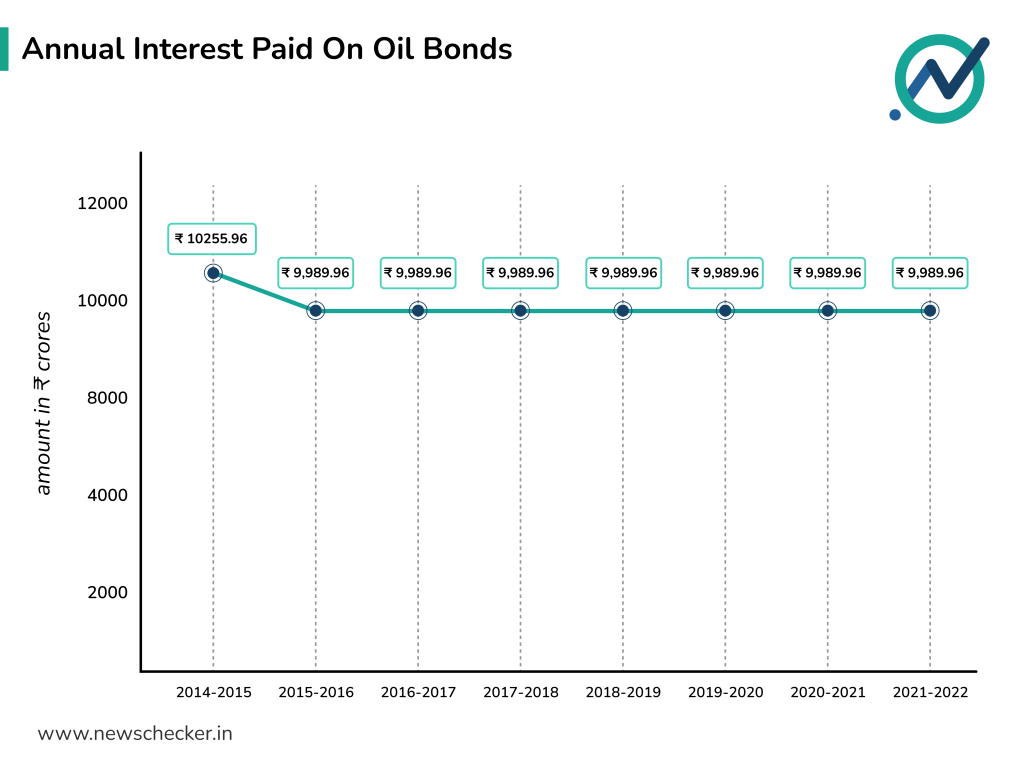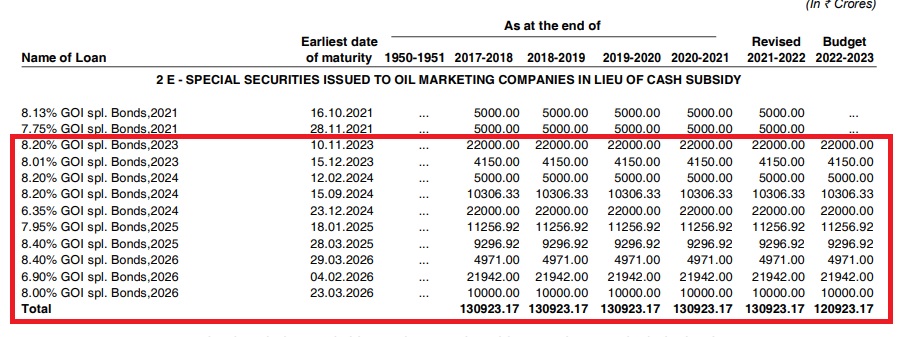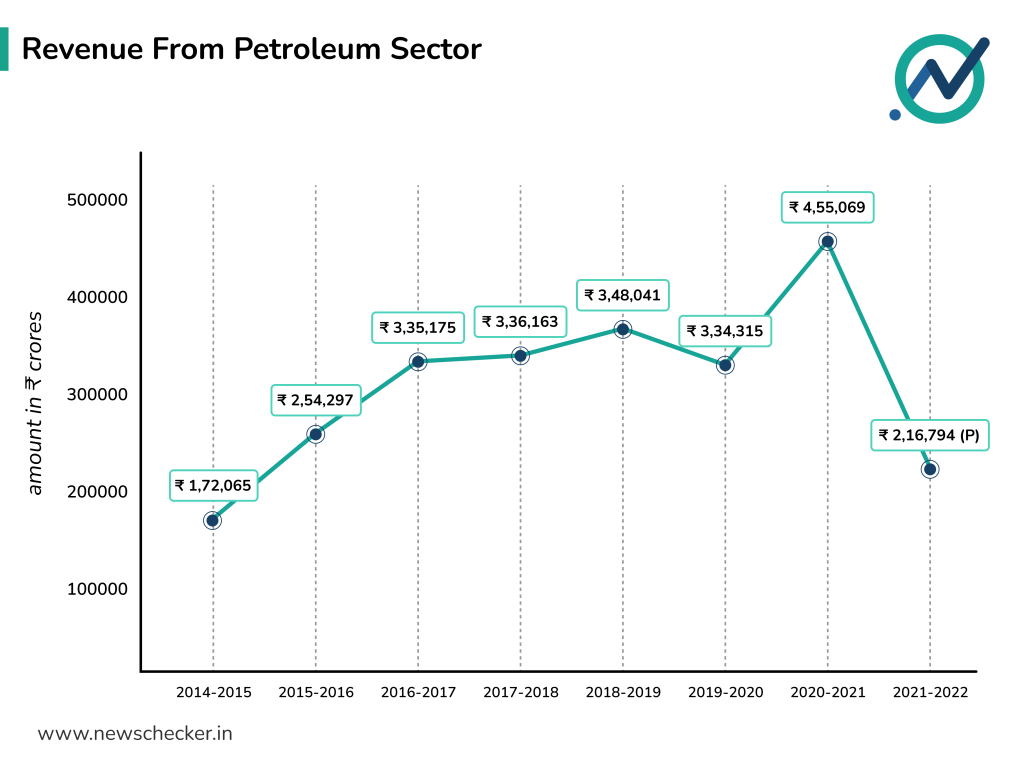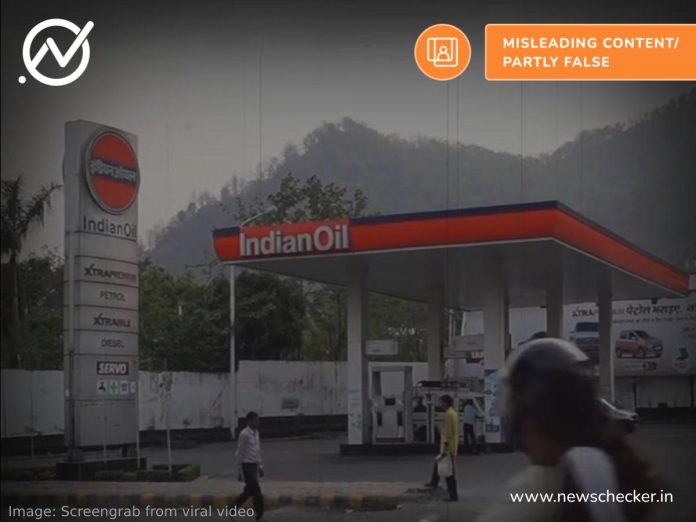Authors
Pankaj Menon is a fact-checker based out of Delhi who enjoys ‘digital sleuthing’ and calling out misinformation. He has completed his MA in International Relations from Madras University and has worked with organisations like NDTV, Times Now and Deccan Chronicle online in the past.
The recent war in Europe has and global sanctions against Russia have pushed up oil prices across the globe, but in India, it only made matters worse for consumers, who have been reeling under steadily climbing fuel prices over the last year.
The price of petrol in the national capital went up from ₹89.71 in January 1 2021 to ₹105.41 on April 25, 2022, while the retail prices of diesel went up from ₹73.87 on January 1, 2021 to ₹96.67 on April 25, 2022.
The central government has blamed several factors for the rise in fuel prices- VAT applied by state governments and Oil bonds by the previous government among a few.
Finance Minister Nirmala Sitharaman has blamed these oil bonds on multiple occasions as a hurdle to reducing taxes on fuel. Speaking at the Rajya Sabha on the subject on March 30, the FM said, “Taxpayers of today are paying for the subsidy which was dished out to consumers more than a decade ago in the name of oil bonds and they will continue to pay for the next five years as the redemption of bonds continues till 2026. That burden is also on us for the benefits given, apparently, through the oil bonds raised 10 years ago.”
But the argument of oil bonds issued by previous govts in power at the centre being the culprit has found maximum traction on social media. Users have cited these to be the main cause behind the sprinting fuel prices, thereby absolving the current government in power.
But does this claim hold water? Newschecker found that the arguments were misleading.
What are oil bonds?
Oil bonds were issued by the Indian government at a time when they used to fix the oil prices. Oil Manufacturing Companies (OMCs) sold fuel to the common man at a lesser price, and the government issued oil bonds to offset the losses faced by the OMCs. A clear definition of the term by the Business Standard says that oil bonds are bonds issued by the government to compensate (OMCs) to offset losses that they suffer to shield consumers from rising crude prices. “These bonds are, in essence, promissory notes of deferred payment of subsidies that the government owes to OMCs. Since the government did not subsidise these companies, these payouts did not show up in budget documents, until the repayment of the principal or interest components took place,” the article on the Business Standard explains.
When Were The Oil Bonds Issued And When Are They Due for payment
Oil bonds were issued between 2005 and 2010 by the UPA government.
According to the data from the union budget, total oil bonds issued by the UPA govt came to ₹1.44 lakh crores , to be paid over 14 years, with interest.
The NDA government has been paying interest for the bonds that have not matured every year from 2014-15.

The total interest on the oil bonds paid till date by by the NDA govt since coming to power in mid 2014 adds up to ₹80,185.68 Cr.
Four of the oil bonds taken by the UPA government worth ₹13,500 crores matured in between 2015 and 2021 and have been paid in full. Few others are due for maturity through 2023 to 2026.

Thus, if we calculate the total sum paid by the NDA over the oil bonds issued by the UPA, we see that the NDA government has had to spend a total of ₹93,685.68 Cr towards interest as well as the principal.
Vajpayee Regime Resorted To Oil Bonds Too
But oil bonds were not the brainchild of the UPA. Previously, oil bonds were issued by the NDA during Vajpayee’s tenure as Prime Minister as well. The Vajpayee government issued bonds worth ₹9,000 crore to state-run oil companies to liquidate about 80 percent of their outstandings with the oil pool account in 2002. These bonds matured in the period between 2009-10 and 2013-14 and the then Central government under the UPA paid a total of ₹53,163 crores in interest.
Oil Revenues Far Outweigh Payout Of Oil Bonds
In 2020-2021, the Central government earned a total of ₹4,55,069 Crores from taxes on oil sector. The revenue of the government from taxes on the petroleum sector has been steadily increasing over the years.

In the same period of time, the amount of money paid by the Centre as interest to OMCs is ₹9,989.96. The amount of interest paid by the centre over the years since 2015-16 is constant.
We see a drastic difference in the amount of money that the NDA has had to pay as interest rate for oil bonds, versus the actual revenue that the government has benefitted from taxes on petroleum sector.
Conclusion
Thus, we find that the claim that the oil bonds by the previous UPA government has prevented the government from bringing down the tax on petrol and diesel is misleading.
Result: Partly False/Misleading
Sources
Union Budget
If you would like us to fact check a claim, give feedback or lodge a complaint, WhatsApp us at 9999499044 or email us at checkthis@newschecker.in. You can also visit the Contact Us page and fill out the form.
Authors
Pankaj Menon is a fact-checker based out of Delhi who enjoys ‘digital sleuthing’ and calling out misinformation. He has completed his MA in International Relations from Madras University and has worked with organisations like NDTV, Times Now and Deccan Chronicle online in the past.



